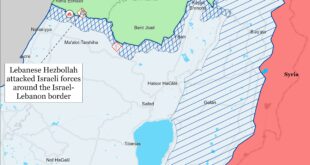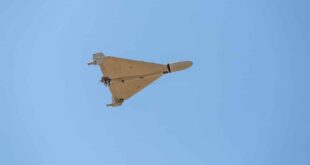Russia is delivering its S-400 missile system to Turkey, a move that threatens to rupture Turkish-U.S. relations and puts Russian military technology inside a key NATO alliance member.
A Russian transport jet Friday brought the first delivery of the $2.2 billion missile system to a Turkish military air base outside Ankara, causing concern from Brussels to Washington.
Washington says the S-400, with its advanced radar that could potentially be used to target NATO jets, threatens to compromise NATO military systems in Turkey. The United States has ruled out delivery of its latest F-35 jet if the Russia missiles are deployed, and Turkish firms face being frozen out of the consortium that is building the F-35.
“We are aware of Turkey taking delivery of the S-400. Our position regarding the F-35 has not changed, and I will speak with my Turkish counterpart Minister Akar this afternoon,” Acting U.S. Secretary of Defense Mark Esper told reporters Friday.
U.S. State Department spokesperson Morgan Ortagus warned Tuesday of “real and negative consequences” if the Russian missiles are procured.
Possible sanctions
Potentially more damaging for Turkey are U.S. sanctions under the Countering America’s Adversaries through Sanctions Act (CAATSA), which could hit Turkey’s already weakened economy.
Ankara is relying on Turkish President Recep Tayyip Erdogan’s relationship with U.S. President Donald Trump. Last month, the two presidents met in Japan on the sidelines of the G-20 summit of the world’s largest economies. At the time, Trump acknowledged the U.S. had a “complicated” situation, when it came to responding to Turkey, and noted that possible sanctions were being discussed.
International relations expert Soli Ozel of Istanbul’s Kadir Has University points out that, with both Democrats and Republicans united in Congress on taking a tough stance against Turkey on the S-400, he thinks Ankara is miscalculating.
“If Congress says CAATSA takes effect, can Trump really say, ‘I will not be implementing it?’ He can, but can he get away with it? I don’t think so. But that is what Ankara believes, and is the thread they are hanging onto. I don’t know where analysis ends and wishful thinking begins with this administration,” Ozel said.
Even though delivery of the S-400 has begun, there could be potential wiggle room to avert a full-blown crisis. Earlier this month, U.S. Senator Lindsey Graham appeared to raise the bar for sanctions, saying they may be triggered only when the missile system is activated.
Turkey has given mixed messages over the timing of the activation of the missile system. Ambiguously, Erdogan said this past week the system would only be used in the event of a threat.
Turkey pushes back
The mounting diplomatic pressure is seeing Turkey push back, saying it will not bow to international pressure and as a sovereign nation, it has the right to buy whatever it wants from any country.
Turkish officials argue Turkey is in a tough neighborhood, bordering Iran, Iraq, and Syria. Three years ago, the Turkish presidential palace was bombed by rogue elements of its military in an attempted coup, and some analysts suggest the missiles could be used to protect Erdogan.
While the S-400 is widely recognized as one of the most advanced missile systems in the world, its practical use is in question, given its incompatible with the rest of Turkey’s NATO military systems.
At odds with NATO
“From a military perspective there is no logic,” said retired general Haldun Solmazturk, who now heads the Ankara-based 21st Century Institute research institution. “This is not only a problem between Turkey and the United States, but it is a problem between Turkey and the rest of the 28 NATO members, so it’s a serious problem.”
Erdogan is blaming former U.S. President Barack Obama and Congress for the crisis, for blocking the purchase of U.S. Patriot Missiles.
International relations professor Huseyin Bagci of Ankara’s Middle East Technical University said Turkey “feels more and more alone in the Western world” without direct support from any of these countries.
“The Russians are the winner of the day, “he added. “The Russians are very successfully creating a conflict between Turkey, NATO and the United States. And the Americans have made a lot of mistakes. They are the architects of this.”
Russian-Turkish ties
Turkey’s purchase of S-400s, in the face of strong opposition from Western allies, is part of a broader process of improving Russian-Turkish ties. Erdogan has developed a good relationship with his Russian counterpart, Vladimir Putin.
Russia and Turkey are increasingly cooperating economically and within the region in particular in Syria. The rapprochement comes as Ankara and Washington face a myriad of differences not only confined to the S-400.
Some analysts see Turkey’s escalating crisis with Washington over Russian missiles as part of a more fundamental problem, where the NATO allies’ strategic interests have been increasingly diverging since the end of the Cold War. Ozel, for one, warns that any break between Ankara and the alliance will have serious consequences.
“This is not a new relationship with the United States,” he said. “It started in 1947. And NATO membership is 67 years old. And everything about Turkish defense and security is calibrated in the Western alliance. So to say we are leaving this is a fairly revolutionary step, and revolutions bring a lot of destruction.”
 Eurasia Press & News
Eurasia Press & News



